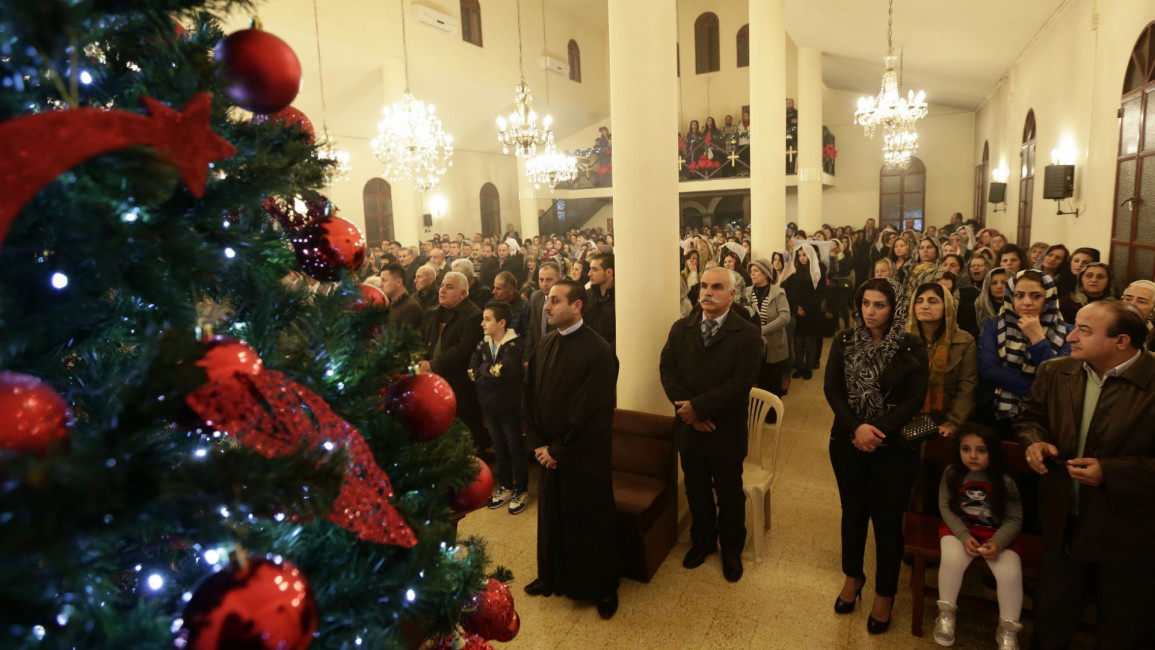Middle East Christians face bleak Christmas
As Christians gather in the Palestinian town of Bethlehem, the birthplace of Jesus, celebrations are more subdued than usual after a year of violence and bloodshed that has not only resulted in the death of thousands in Iraq, Syria and Gaza, but has also seen whole communities uprooted and forced into exile.
The persecution of Christian minorities was the subject of a special Christmas message from Pope Francis, released on Tuesday in which he called for religious tolerance in the region, adding that the mere presence of the Christian community in the Middle East is more important than any service the church can provide there.
The pope urged Middle Eastern Christians not to leave the region, despite being “brutally driven out” by “previously unimaginable” attacks against them. He was alluding to Islamic State group (IS), whose persecution of Christians and Yazidis, has been brutal.
Dwindling numbers
The number of Christians in the Middle East has been dwindling for a number of years, but recently there has been an exodus from the region as a result of the war in Syria and the advance of so called Islamic State militant group in both Syria and Iraq.
In Iraq, some of the oldest Christian communities have steadily reduced in size in recent years.
There were one million Iraqi Christians before the US declared war on Iraq in 2003. They included Christians of different denominations and ethnicities, including Catholics, Orthodox, Chaldeans, Assyrians, Armenians, to name but a few. But the war unleashed a vortex of religious extremism and created new forms of sectarianism and intolerance. Today, only around 250,000 people remain.
The emergence of IS in the last few months has only further exacerbated the problem in Iraq and parts of Syria.
Thousands have fled to other parts of Iraq, the Kurdish region of Irbil, neighbouring Jordan and other countries, where they often take refuge in local churches.
Baghdad’s Christian communities have taken a blow, and the many Christians based in Iraq’s second largest city, Mosul, fled for their lives when IS swept in and took control of the area last summer. Those who remained were subjected to killings, torture and pressure to convert.
In Syria, Christians, like Muslims and other communities, have suffered loss of life and economic deprivations since the conflict began in 2011.
Many Christians also feel trapped; caught between the regime and opposition rebels.
In the northern Syrian city of Aleppo, historically one of the most diverse and cosmopolitan ancient cities of the region, the number of Christians has dwindled in the last four years. There used to be 500,000 Christians in Aleppo, constituting 12 percent of the population, but only 70,000 remain today.
While there remain substantial and thriving Christian minorities in several Arab countries, particularly Egypt, Lebanon, Palestine and Jordan, today’s conflicts have brought more urgent reasons to leave Iraq and Syria.
In his open letter, the Pope Francis stressed that the region’s Christians could help their fellow Muslims present a “more authentic image of Islam, as so many of them desire”.
Chistians have “an enormous responsibility”, the pope wrote, assuring them they are not alone. Referring to the situation of the Christians, Yazidis and other minorities in Iraq, he called upon all religious leaders to “condemn these crimes unanimously and unambiguously, and to denounce the practice of invoking religion in order to justify them”.
But despite the pope’s words of "comfort and solidarity”, there is little consolation for the tens of thousands who face a bleak Christmas, and a terrifiyingly uncertain 2015.



